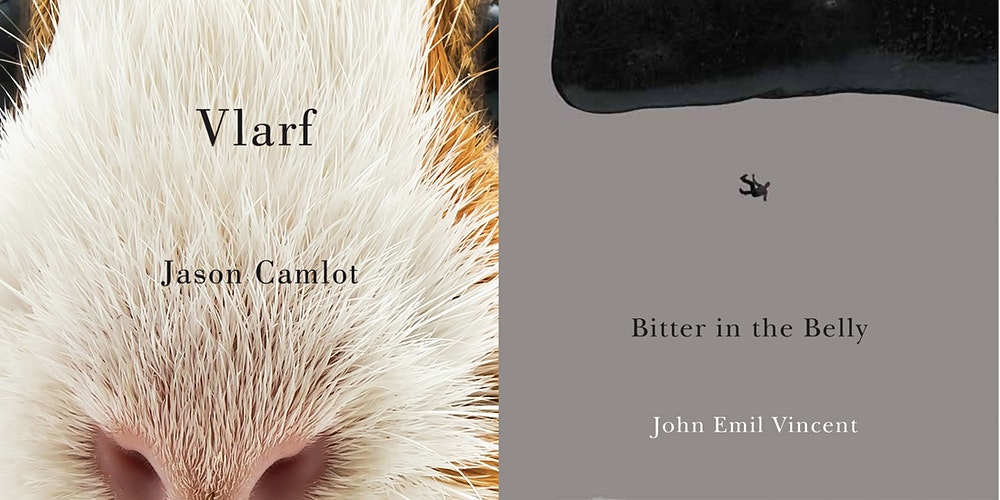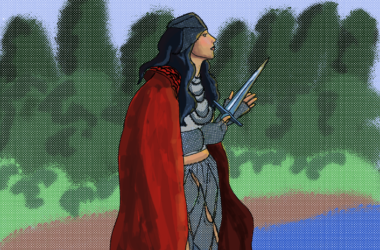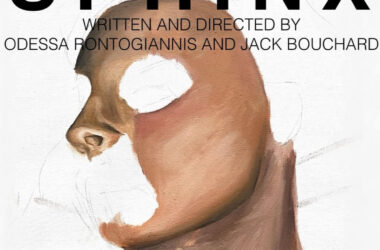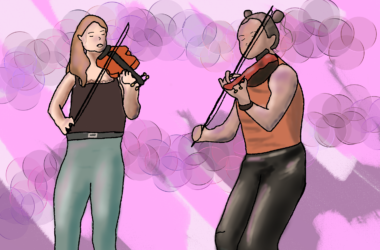Content Warning: Mention of suicide
On Nov. 26, Concordia professors Jason Camlot and John Emil Vincent held a reading of their new poetry books, Vlarf and Bitter in the Belly, respectively. Hosted by English literature professor Katherine McLoed at Concordia’s 4th Space, the long-form reading was inspired by literary events held in the 1960s at Concordia—then called Sir George Williams University. At the time, authors would read their entire book in front of an audience, often starting in the late evening and going on into the night. Although not quite as ambitious in duration, the event offered its attendees two hours of poetry without pause. To accommodate a wider audience, the university also broadcasted the readings on Zoom and YouTube.
John Emil Vincent is a poet and a professor of creative writing at Concordia University. Bitter in the Belly is his most personal poetry book to date, navigating one of his best friends’ suicide in a way that mixes tragedy with absurdity. The many laughs and gasps of the audience throughout his readings attested to Vincent’s skills as an orator and as a writer.
When he approached the subject of his best friend’s premature death, the audience’s gaze remained fixed on the stage, captivated by the candour of his words. His poem “Your Essay on Black Box,” titled after an essay written by his friend before his death, is an homage to their friendship.
“There are no expressions the world takes in change until change has passed until the moment relaxes,” Vincent read. “And the world touches its face gingerly.”
Jason Camlot took a different approach than his fellow professor. Poet, English professor, and research chair in literature and sound studies at Concordia, Camlot brought his scholarly research on 19th-century literature into his book Vlarf, a modern approach to the Victorian poetry canon.
Before he started his reading, Camlot asked the audience a question that was on everyone’s mind: What exactly is vlarf?
“Wikipedia explains that vlarf poetry was an avant-garde poetry movement of the early 21st century,” Camlot said. “One of their central methods was to mine the internet with odd search terms, then distill the results into often hilarious and sometimes disturbing poems, plays, and other tasks.”
Inspired by this modernist trend, Camlot uses techniques such as erasure, bout-rimé, and mimesis to reimagine the works of John Stuart Mill, John Ruskin, and other Victorian thinkers.
The work that inspired the cover of Vlarf, and one of the longest poems in the book, is titled “Fudge in Entropy,” a meditative monologue spoken from the voice of a guinea pig, inspired by the works of Robert Browning. The audience laughed as Camlot took on the role of the guinea pig, which narrates its life under the care of its poet-owner. With an absurd tone, the piece explores poetry’s current role in the artistic community. Camlot kept this light-hearted poem for the very end of the event, a perfect conclusion of the two-hour long celebration of poetry.
“His poems once were too crowded, now that had to stop,” Camlot read in the guinea pig’s voice, followed by chuckles from the audience. “The painter would make it stop. The overcrowding in his poems was not fatal to people, or to other creatures.”
The next poetry event at Concordia’s 4th space will be held on Dec. 1, with readings from poets Caroline Bergvall, Kaie Kellough, and Oana Avasilichioaei.









